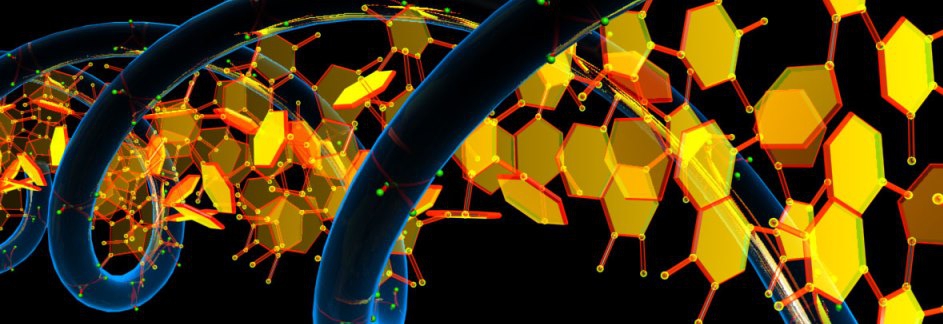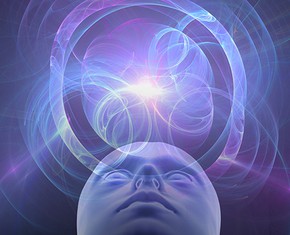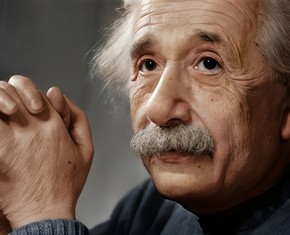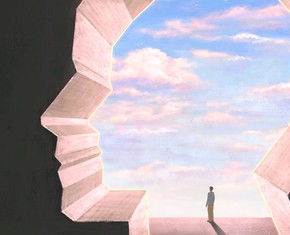The views expressed in our content reflect individual perspectives and do not represent the authoritative views of the Baha'i Faith.
 With the release of Sam Harris’s book The Moral Landscape: How Science Can Determine Human Values, the moral implications of scientific process and discovery have become a hot topic in some circles. I hear someone almost every day affirm that science can, indeed, determine our morality. When I ask how this is so, I am usually referred to Harris’s book and told that he has proved it.
With the release of Sam Harris’s book The Moral Landscape: How Science Can Determine Human Values, the moral implications of scientific process and discovery have become a hot topic in some circles. I hear someone almost every day affirm that science can, indeed, determine our morality. When I ask how this is so, I am usually referred to Harris’s book and told that he has proved it.
Conversely, others (many of them atheist or at least secular thinkers) argue that morality is completely outside the domain of science and has absolutely nothing to say about our values.
I am in partial agreement (and disagreement) with both points of view.
I don’t think science can determine our values, not if we are to adhere to the idea that science is the process of discovering objective fact. Morality calls for the subjective interpretation of fact.
To illustrate: The message that we are one family has come to us from religion for millennia. Those claiming direct revelation from God have stated it repeatedly and in myriad ways. In the words of Abdu’l-Baha at a talk given in the US in 1912:
“…Baha’u’llah has proclaimed to the world the solidarity of nations and the oneness of humanity. Addressing all mankind He has said, “Ye are all leaves of one tree and the drops of one sea.” The world of humanity has been expressed by Him as a unit—as one family.”
Hold that thought.
Darwin’s theory of evolution suggested that the above statement was also physically true and gave his successors the foundation to suppose that all humanity descended from a common ancestor. And of course, in the 1990’s, the Human Genome Project gave further evidence that we are, indeed, one human family. As a Baha’i, it seems to me that science has now confirmed what religion has told us all along.
BUT that’s because I’m a Baha’i and that is the way I interpret the findings of science.
In reality, science cannot tell us what “spin” we should put on the fact of our genetic similarities. In fact, I’ve heard both Darwin’s theories and the Human Genome Project’s discoveries “spun” by people who felt the message was that there were different levels of “evolution” within the human species and different genetic attributes that led to one group being superior or inferior to another. Thus, these genetic differences should lead to segregation and separation by genetic “quality.” The morality prescribed by this subjective interpretation of scientific discovery ruled out the intermarrying of black and white, Jew and Gentile. It led Darwin’s own cousin, Francis Galton, to propose the principles of social Darwinism and lay the foundations of eugenics—a movement that aimed at eradicating “inferior” human input to the gene pool through sterilization of “defective” individuals.
But even before Darwin’s theory of evolution became widely known, the scientific revolution that began in the 1500’s suggested to some people that some races of human beings were superior to others. Thus, the founding fathers of the United States decided their African slaves were only 3/5ths human.

Interracial Marriage became legal in all States in 1967
Back to Abdu’l-Baha: in the speaking tour referenced above, during which he promoted his Father’s teachings, he encouraged the intermarriage of the races in a country which, one year later, would begin to enforce anti-miscegenation laws aimed at preserving “racial purity.”
So, I don’t think science can be the arbiter of morals, because morals, when hammered out purely by the consensus of a power group, are subjective and often the combined result of fear, ignorance, and prejudice of one group toward another. Historically, science is no more proof against being a tool of the ignorant than organized religion has been.
I think the answer lies in a balancing of science, faith, and reason such that science feeds us physical information about our universe, faith suggests how we use that information, and reason allows us to apply both science and religion wisely.
















Comments
Sign in or create an account
Continue with Googleor